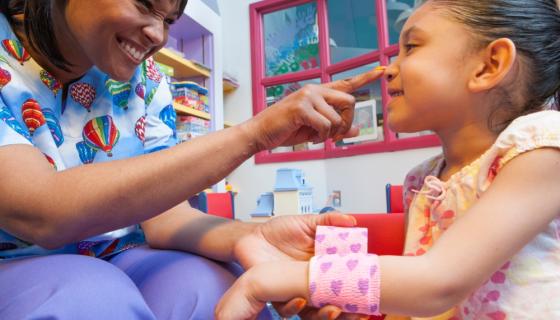
Effective Medical Management: A kindergarten case study
A recent assessment and rating visit to a metropolitan Adelaide kindergarten demonstrated best practice in a number of strategies and procedures to ensure the health, safety and wellbeing of children with medical conditions.
All children at the service with a medical condition have a medical management plan completed by a medical practitioner and reviewed by the recommended review date. Each child also has a current risk minimisation plan and communication plan.
The service’s strategies for a child with coeliac disease are commendable. An educator sits with the child during mealtimes to avoid any cross contamination of food. Planning learning experiences involved risk minimisation, including making gluten free playdough for all children.
Educators also use an app with colour coded symbols alongside children’s names, so all educators can easily identify specific medications for children with, for example, asthma, anaphylaxis and any dietary requirements.
The kindergarten also used Allergy Buddy bags to store medication for emergency procedure rehearsals and excursions.
The risk minimisation plan is developed in consultation with families and includes individualised triggers rather than generic information, and a communication plan outlining roles and responsibilities of families, educators and service leaders is completed.
To further support all staff and relief educators, an induction process for new and relief educators includes reviewing all children’s medical plans, which all staff need to read and sign to reflect this.
Children’s medical information and medication is stored in the room in a location that is safe and inaccessible to children. Children’s medication is taken on emergency procedure rehearsals and excursions.
For further information:

